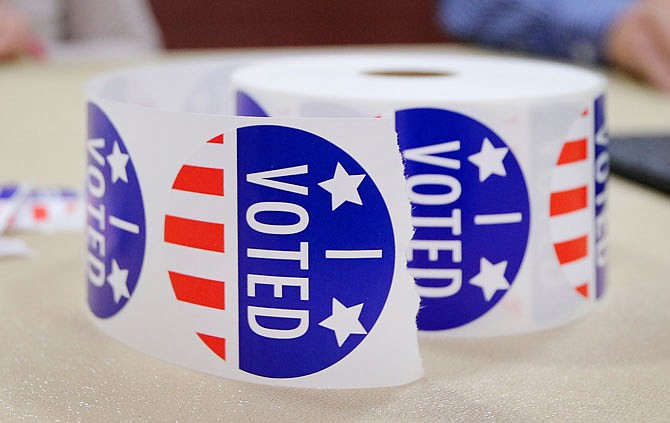A scheduled weeklong trial over voting rights in Missouri began Monday before Cole County Circuit Judge Dan Green.
Along with the Washington, D.C.-based American Women organization, three Missouri plaintiffs from St. Louis and Webster Groves are part of the lawsuit against Missouri Secretary of State Jay Ashcroft over five election laws they say make it difficult or impossible for Missourians to vote.
The plaintiffs seek to make the following changes:
- "Eliminate the requirement that most voters have their ballot envelopes notarized.
- "Eliminate the requirement that some voters return their ballots by U.S. mail only.
- "Ensure that ballots are counted even if mail service delays cause them to be delivered after the polls close on Election Day.
- "Allow third parties to assist in collecting and submitting mail ballots.
- "Develop and implement consistent and fair signature matching protocols, and ensure that voters receive reasonable notice and an opportunity to cure if a signature is questioned."
Representing the state, Assistant Attorney General Jeremiah Morgan said the Legislature may, under the law, authorize voting by mail as a special privilege, which it did in May in light of the COVID-19 pandemic. Gov. Mike Parson signed the legislation into law in June.
As the law currently stands, Missouri voters this year in specific at-risk categories for contracting or transmitting the COVID-19 disease or voters who have contracted the disease may vote via absentee ballot by mail. Those ballots would have to be notarized, unless someone is incapacitated or confined due to illness or disability or if someone is a caregiver for a person in those circumstances.
People at risk for COVID-19 or who have already contracted the coronavirus that causes it also do not need to have their ballot notarized.
Morgan said mail-in voting is not a constitutionally guaranteed right.
"Senate Bill 631 didn't remove any voting options and didn't place any requirements on existing voting options," Morgan said. "All it did was add options."
Morgan said there were no cases of anyone contracting COVID who went to voting sites to cast a ballot in the August primary election. He also noted the rate for rejected ballots in the August primary election was 2.9 percent, only slightly higher than the 2.6 percent rate in the August 2016 primary.
Attorney Sarah Gonski, arguing for American Women, said voters are confused about how they can cast a ballot in this November's general election.
"Because it is offering voting by mail to everyone, Missouri has the obligation to administer it in an even-handed, constitutional manner," Gonski said. "Both individually and collectively, these laws violate the Missouri Constitution. They burden the constitutional right to vote. They also strip away a voter's due process. They cause confusion and set a trap for the unwary."
Among those testifying on the first day of the trial was Cole County Clerk Steve Korsmeyer, who said more than 3,000 registered voters in the county have received absentee ballots for this November's election. He believes having a ballot notarized helps prevent fraud. He also said he does not know of a person who has been unable to find a notary to notarize a ballot envelope.


